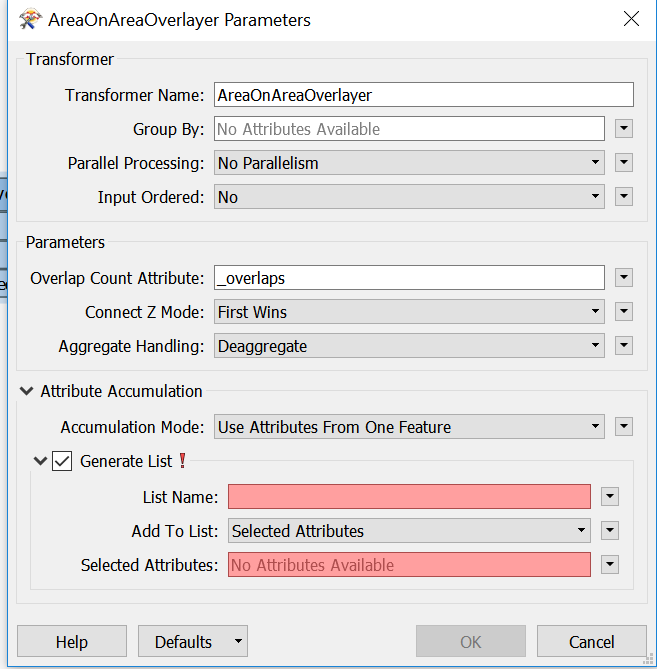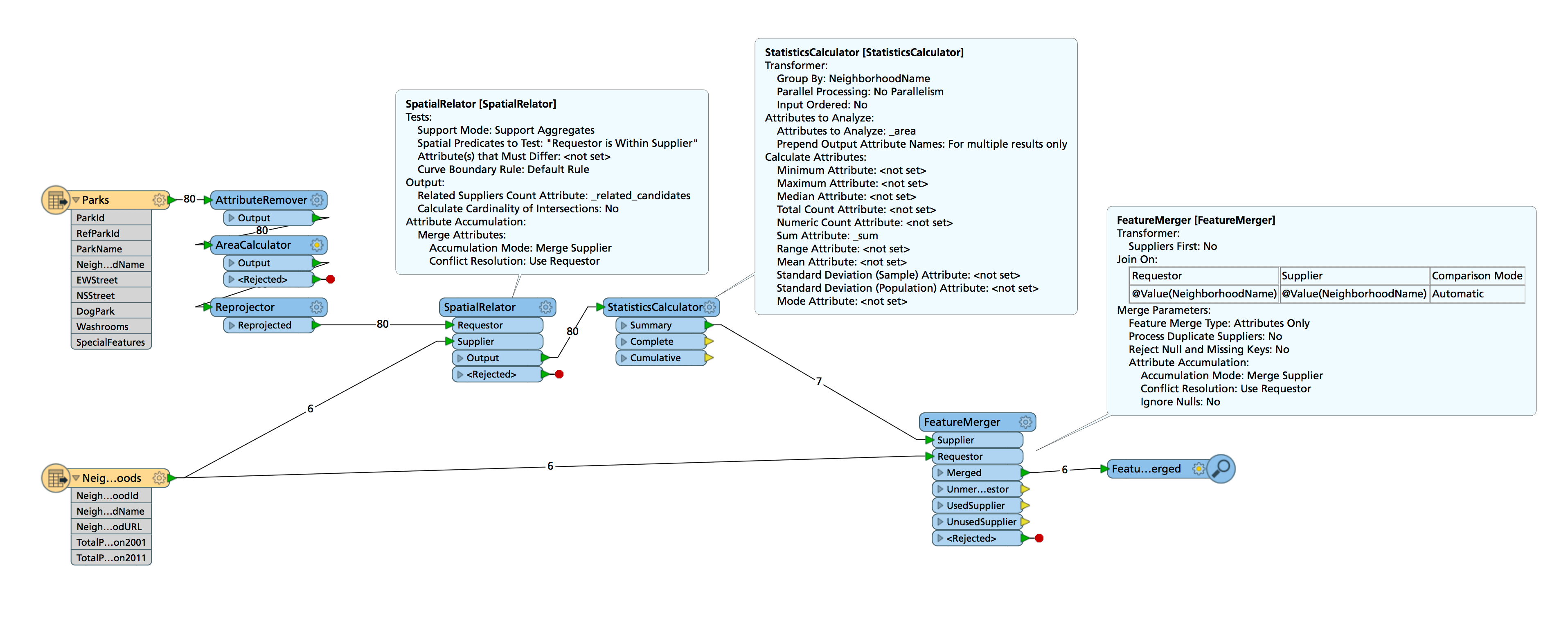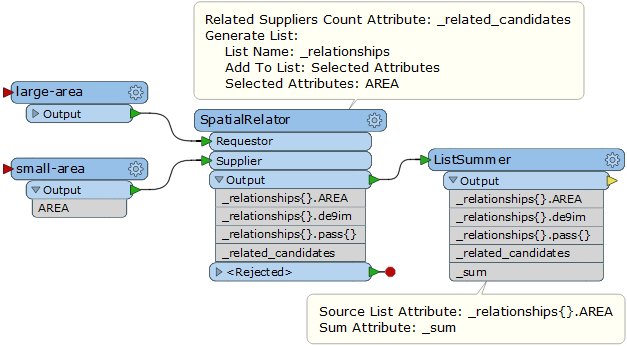Hi there,
I have a bunch of small polygons that each have an AREA attribute, showing their square footage. These are contained within several much larger polygons.
What I need is if Large polygon A contains 3 small polygons, one 100ft, one 50ft, and one 75ft, I want to generate a new attribute in my output that says Large polygon A contains 225ft. The same happens for Large Polygon B, C, so on. My output is essentially the Large polygon layer, but with the additional new attribute.
I did try a spatial relator between the small and large polygons, and then a Statistics Calculator outputting SUM and grouping by the unique ID each Large polygon has, but it seems like the output attribute is the first small polygon contained, not all of them together.
Any insight in what I can do different here to get the correct results?
Best answer by redgeographics
View original











